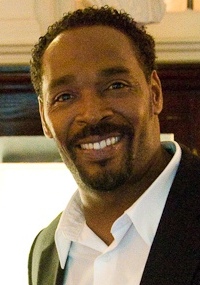A Quote by Henry Giroux
Confronting the intolerable should be challenging and upsetting. Who could read the testimonies of Primo Levi and not feel intellectually and emotionally exhausted? Or Martin Luther King Jr.'s words, not to mention those of Malcolm X? It is the conditions that produce violence that should upset us ethically and prompt us to act responsibly, rather than to capitulate to a privatized emotional response that substitutes a therapeutic language for a political and worldly one.
Quote Topics
Act
Challenging
Conditions
Confronting
Could
Emotional
Emotional Response
Emotionally
Exhausted
Feel
Intellectually
Intolerable
King
Language
Levi
Luther
Malcolm
Martin
Martin Luther King
Martin Luther King Jr
Mention
Political
Produce
Prompt
Rather
Read
Response
Responsibly
Should
Substitutes
Than
Therapeutic
Those
Upset
Us
Violence
Words
Worldly
Related Quotes
I still hear people say that I should not be talking about the rights of lesbian and gay people and I should stick to the issue of racial justice. But I hasten to remind them that Martin Luther King Jr. said, 'Injustice anywhere is a threat to justice everywhere.' I appeal to everyone who believes in Martin Luther King Jr.'s dream to make room at the table of brother- and sisterhood for lesbian and gay people.
We like to think of the '60s as Martin Luther King, Jr. and Malcolm X and a little bit of friction - no, there were all of these different groups. There was the Student Nonviolent Coordinating Committee (SNCC), the Black Panthers, Martin and Malcolm, but also the Whitney Youngs of the world, the Bayard Rustins of the world.
I remember back in the 1960s - late '50s, really - reading a comic book called 'Martin Luther King Jr. and the Montgomery Story.' Fourteen pages. It sold for 10 cents. And this little book inspired me to attend non-violence workshops, to study about Gandhi, about Thoreau, to study Martin Luther King, Jr., to study civil disobedience.
Every now and then I think about my own death, and I think about my own funeral. [...] Every now and then I ask myself, 'What is it that I would want said?' I'd like somebody to mention that day, that Martin Luther King, Jr., tried to give his life serving others. I'd like for somebody to say that day, that Martin Luther King, Jr., tried to love somebody.
Often, we feel that we need a leader outside of ourselves -a Buddha, a Gandhi, or a Martin Luther King, Jr.- to show the way. But we have the Buddha inside of us. We have Gandhi and King inside of us as well. We are interconnected. We don't need to wait for some other person to be the change we want to see in the world
There's a gap somehow between empathy and activism. Rev. Dr. Martin Luther King, Jr. spoke of 'soul force' - something that emanates from a deep truth inside of us and empowers us to act. Once you identify your inner genius, you will be able to take action, whether it's writing a check or digging a well.
I was more than anything a radical. I was more sympathetic to Malcolm X than Martin Luther King because Malcolm X was more of a radical who was willing to confront discrimination in ways that I thought it should be confronted, including perhaps the use of violence. But I really just wanted to be left alone. I thought some laws, like minimum-wage laws, helped poor people and poor black people and protected workers from exploitation. I thought they were a good thing until I was pressed by professors to look at the evidence.



































